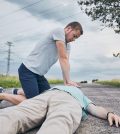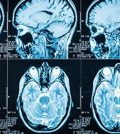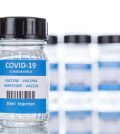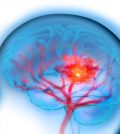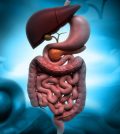- Could Your Grocery Store Meat Be Causing Recurring UTIs?
- Are You Making This Expensive Thermostat Error This Winter?
- Recognizing the Signs of Hypothyroidism
- 10 Strategies to Overcome Insomnia
- Could Artificial Sweeteners Be Aging the Brain Faster?
- Techniques for Soothing Your Nervous System
- Does the Water in Your House Smell Funny? Here’s Why
- Can a Daily Dose of Apple Cider Vinegar Actually Aid Weight Loss?
- 6 Health Beverages That Can Actually Spike Your Blood Sugar
- Treatment Options for Social Anxiety Disorder
-
Cutting U.S. Homelessness by 25% Could Prevent 2,000 Opioid Deaths Each Year
Reducing homelessness by 25% could save nearly 2,000 lives lost each year to opioid overdoses, a new study estimates. It also could save 850 lives from alcohol poisoning and 540 from cocaine overdoses, researchers from the University...
- Posted February 8, 2024
-
CPR’s Lifesaving Powers Decline as Minutes Pass
CPR can save lives, but its ability to restore heart function goes from slim to none in a shockingly short time, a new study finds. How short? A person’s chance of surviving cardiac arrest while receiving CPR...
- Posted February 8, 2024
-
Your Brain Finds Ways to Compensate Against Age-Related Decline
No one’s brain is as sharp at 60 as it was at 20. However, new research supports the notion that folk’s brains can make subtle adjustments with age to compensate for that decline. A team of British...
- Posted February 8, 2024
-
Americans Have One Trusted Source for Info on COVID Vaccines
A doctor or nurse might be the only person capable of convincing a vaccine-hesitant person to get the COVID jab, a new study shows. Those who trust the medical profession are most likely to get vaccinated against...
- Posted February 8, 2024
-
Head Position May Be Key to Better Clot Removal After Stroke
The position in bed of stroke victims’ heads could influence how well they’ll fare in upcoming surgery to remove a blood clot from their brain, a new study finds. Hospital beds for stroke patients are typically set...
- Posted February 8, 2024
-
Adding Blood Thinners to Clot-Busting Meds Won’t Improve Stroke Outcomes: Study
Adding blood thinners to clot-busting drugs does not improve outcomes for stroke patients, a new study claims. Doctors had hoped that combining the two types of medications would improve treatment of stroke, as a similar combination has...
- Posted February 8, 2024
-
Scientists Gain New Insights Into How Small Intestine Works
It was the ancient Greeks who first divided the 20-foot length of the small intestine into three parts: The duodenum, the jejunum and the ileum. However, the organ may finally be ready for an update: U.S. researchers...
- Posted February 8, 2024
-
Most Americans Don’t Know Their Lifesaving ‘Heart Numbers’: Survey
Ohio resident Erica Hutson was in her 20s when she found out she had high cholesterol through a health check required by insurance. Because she was young and fit, Hutson shrugged off the test result. But Hutson...
- Posted February 7, 2024
-
Cinnamon Processor in Ecuador Is Culprit Behind Lead-Tainted Applesauce, FDA Says
A company in Ecuador that processed the cinnamon used in flavored applesauce pouches destined for the American market is the likely source of lead contamination in those products, U.S. investigators said. In an update to its investigation...
- Posted February 7, 2024
-
Late-Life Divorce May Be Mentally Tougher on Women Than Men
Divorce later in life might be harder on women than on men, based on patterns of antidepressant use in a new study of people aged 50 or older. Both sexes tended to increase their antidepressant use when...
- Posted February 7, 2024


